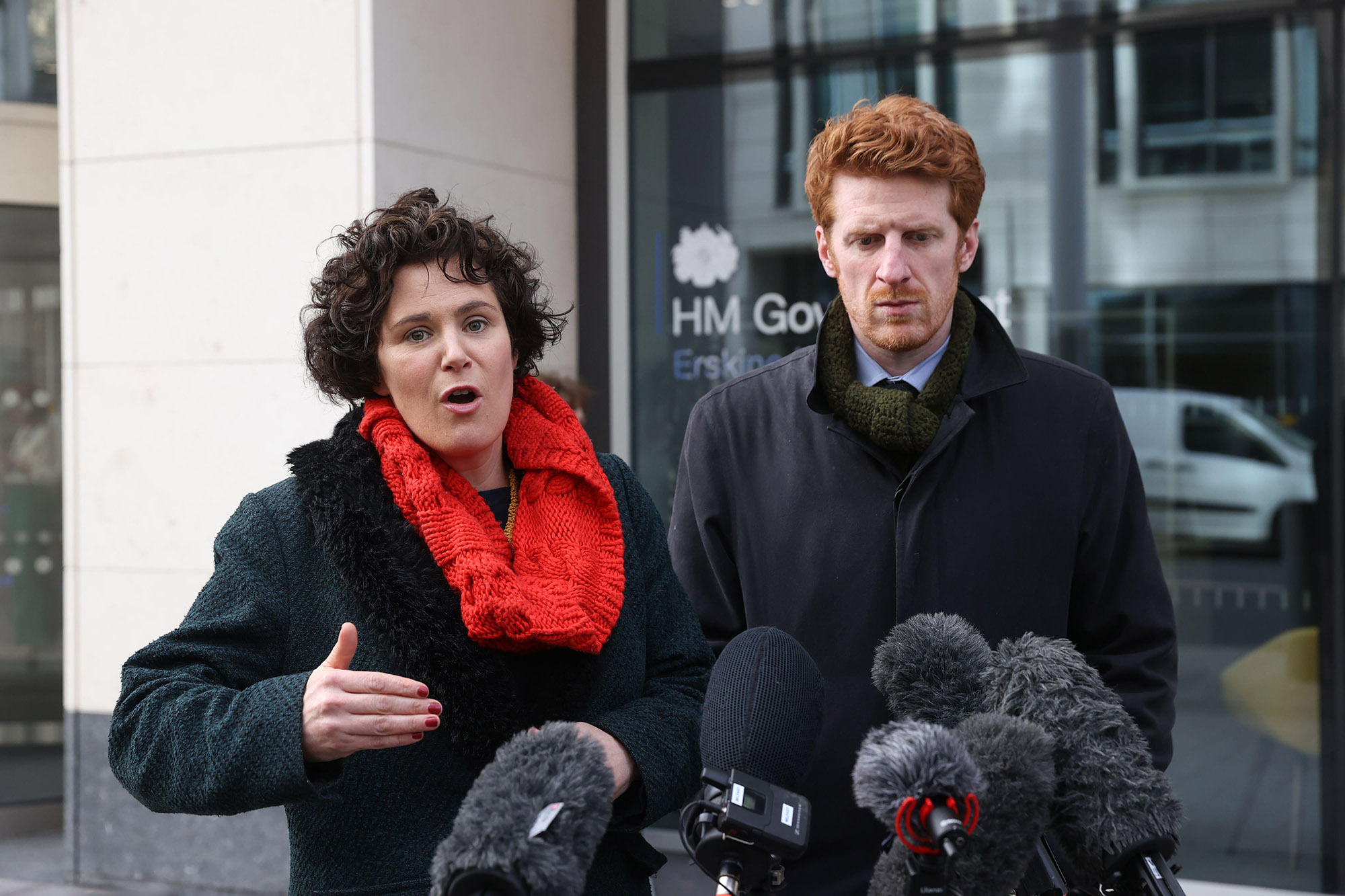Belfast MP Says Northern Ireland “Addiction To Veto” Could Compromise Stormont Brake
The Stormont building has been shuttered since last year after the DUP withdrew from the power-sharing executive (Alamy)
4 min read
A Northern Ireland MP believes devolved government has “an addiction to veto” that means Rishi Sunak's Northern Ireland Protocol deal could inadvertently add “another layer of dysfunction” to an already volatile political situation.
Prime Minister Rishi Sunak announced proposals last week for a new mechanism known as the 'Stormont brake', which the Northern Ireland Assembly can use to have a greater say on how future EU laws apply to them. It is considered a crucial part of the ‘Windsor Framework’ agreement to fix wider problems with the protocol that affected trade with the rest of Great Britain.
Government in Westminster sees the mechanism as biggest incentive to the parties at Stormont to return to power-sharing, as it can only be used if the ruling executive is back in place, having collapsed last year after the Democratic Unionist Party (DUP) resigned in protest over the protocol.
But Claire Hanna, the SDLP MP for Belfast South, worries it may cause further problems down the line in the way it is potentially used by the DUP, who have the most hard-line party on the continued influence of EU rules post-Brexit.
Speaking to PoliticsHome podcast The Rundown, she welcomed the overall plans by Sunak as a potential “shot in the arm” for the local economy, which has been struggling with new customs regulations.
But she said as well as the stability of a reformed executive, Northern Ireland needed a "clean pitch to investors" which she worried the Stormont brake may compromise.
“Northern Ireland has a bit of an addiction to veto, and I think there is a concern that we're inserting another layer of dysfunction there,” she said.
"That is something that might deter investors, if we're saying come to Northern Ireland, you'll be in the UK and the EU single markets, but by the way you are subject to the whim of a party that hasn't been exceptionally rational on this issue over the last few years.”
She highlighted why so many are keen for power-sharing to return in Northern Ireland and end the effective direct rule from Westminster that has been in place for the last year, saying there has been “a degradation of policy decisions in absolutely every area”.
Hanna, who was a Belfast city councillor and a Northern Irish assembly member before entering the Commons in 2019, explained: “The health service in Northern Ireland, genuinely is in a terrible place.
“Waiting lists are bad in Britain, but they are in many cases ten and more times worse. Things like the energy support payments that would have reached you before Christmas, they didn't roll out here until February because of the governance delays.
"But really, overall, there's a damage in people's belief in politics and in democratic processes and their belief in devolution, and a sense of hopelessness.”
 SDLP MP Claire Hanna said there needs to be reform to the way Stormont is run (Alamy)
SDLP MP Claire Hanna said there needs to be reform to the way Stormont is run (Alamy)
She said the assembly has not been sitting for 40 per cent of the time since it was set up following the Good Friday Agreement in 1998, and that people “are losing faith in it”.
“The coalition structures as they are written now, and they were suitable 25 years ago, but basically they don't incentivise compromise,” Hanna continued.
"The big two parties know that if they get their vote out they can block a government and they can block everything and then keep things on their terms. And there doesn't appear to be a consequence electorally.”
At present the First Minister and deputy First Minister are elected on a joint ticket with one from the unionist side, and the other from the nationalist, so both communities are represented at the top of government, but if the largest party on either side withdraws their support for the nominations the system collapses.
Both positions have been vacant since 4 February 2022, though Hanna believes the DUP are likely to return to the table on power-sharing once they deliver their final verdict on the Windsor Framework in the coming weeks.
But she added: “If they don't come back, then we need to move on to a conversation about Stormont reform and about changing the context where a party with about 25 per cent of the vote can't hold back governance and and progress on every other issue.”
PoliticsHome Newsletters
PoliticsHome provides the most comprehensive coverage of UK politics anywhere on the web, offering high quality original reporting and analysis: Subscribe
